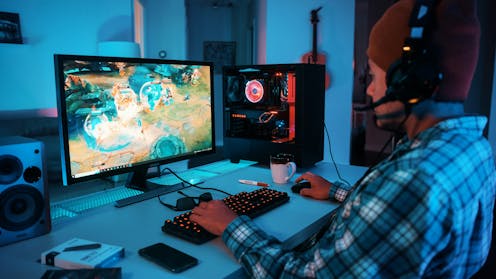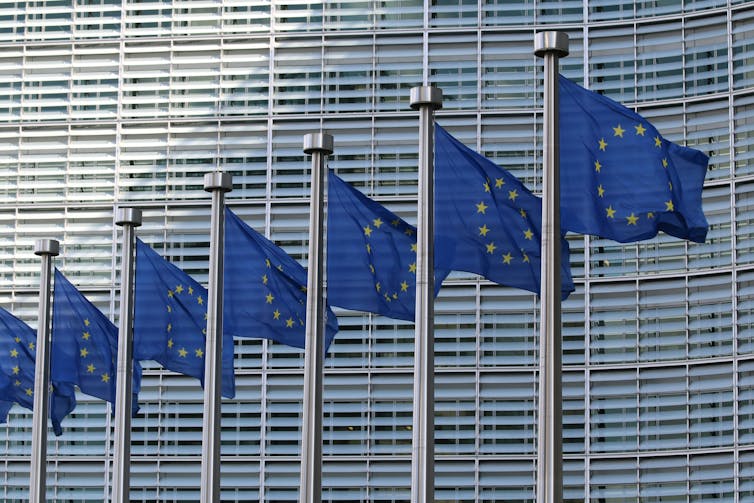
When French video-game publisher Ubisoft announced it was shutting down servers for The Crew , a popular online racing game released in 2014, it wasn't just the end of a title. It marked the beginning of a broader reckoning about the nature of digital ownership, led by players angry at the company's decision to deny them something they had paid for.
Authors
- Louis-Etienne Dubois
Associate Professor, School of Creative Industries, The Creative School, Toronto Metropolitan University
- Miikka J. Lehtonen
Specially Appointed Associate Professor, College of Business, Rikkyo University
The Stop Killing Games (SKG) movement was born from that moment. As of July 2025, it has gathered more than 1.4 million signatures through the European Citizens' Initiative . The European Commission is now obliged to respond .
At the heart of the issue is a deceptively simple question: when we buy a video game, what are we actually purchasing? For many gamers, the answer used to be obvious. A game was a product, something you owned, kept and could return to at will.
However, live service games have changed that dynamic. These are games usually played online with others and that typically require subscriptions or in-game payments to access features or content. They include popular titles such as Fortnite, League of Legends and World of Warcraft.
With live service games, players are learning that what they've really bought is something more tenuous: access.
And, evidently, access is something that can be revoked.
Erasing gaming communities
The issue goes well beyond The Crew. In the last couple of years alone, several games have been shut down , including Anthem, Concord, Knockout City, Overwatch 1, RedFall and Rumbleverse.
There are valid reasons why companies might choose to end support for a title. The game industry is saturated and brutally competitive. Margins are tight, player expectations are high and teams often face impossible deadlines. When an online game underperforms, a publisher will likely be inclined to cut their losses and shut it down.
Games tend to accumulate bugs in their code that are complex to clean and create player dissatisfaction. In our research , we have shown that when a game underperforms or becomes too costly to maintain, shutting it down can be a rational, even reparative, decision on many levels.
Yet, when companies decide to shut down a live service game's servers, it's not just content that vanishes. So do the communities built around it, the digital assets (costumes, weapons and so on) players have earned or paid for and the sometimes hundreds of hours invested in mastering it. In the blink of an eye, the game is gone, often without recourse or compensation.
That's not just a customer service issue; it's a cultural one.
Games are not just another type of software. They are creative works that can foster shared experiences and vibrant communities.
Players don't just consume games, they inhabit them. They trade stories, build friendships and express themselves through digital spaces. Turning those spaces off can feel, to many, like erasing a part of their lives.
This profound disconnect between business logic and player experience, which we theorized in the past , is what gave rise to the SKG movement. Video game publishers failed to anticipate the cultural backlash triggered by these shutdowns.
What regulators can do

Players of shut-down games may believe they were misled and should be compensated. Unfortunately, the current system offers little transparency and even less protection for them.
That's where regulation can help. The European Commission now has a chance to provide much-needed clarity on what consumers in the European Union are actually buying when they purchase live service games.
A good starting point would be requiring companies to disclose whether a purchase grants the buyer ownership or limited access, akin to recent legislation passed in California .
Minimum support periods, clearer content road maps (the projected updates) and making companies create mandatory offline versions for discontinued online games might also help prevent misunderstandings.
There's room for creativity here, too. Rather than killing a game outright, companies could allow player communities to take over its maintenance and allow for the continued creation of new content, especially for titles with active fan bases.
This is known as "modding," and in some cases, community-led revivals have even inspired publishers to re-release enhanced editions years later.
Developers need protections too

There's another part of this story that's unfortunately overlooked: the people who make these games. Video game developers are regularly subjected to long hours, poor conditions and toxic workplace cultures in order to meet the demands of continuous live service updates.
In our research , we've found that this new model of endless content creation and perpetual support is unsustainable, not just financially or technologically, but humanly.
Instead of periodically "crunching," live service game developers are now constantly "grinding." Somehow, in an industry notoriously demanding for workers, this model has managed to make things even worse.
Policymakers need to protect both players and the workers creating games. That means, among other things, rethinking release schedules, enforcing rest periods for development teams and holding companies accountable for the well-being of their staff. The overall health of the industry depends on it.
Whether you support the SKG movement or not, the issues it raises are urgent. While the ownership question is a very legitimate one, video game developers deserve more care and protection.
The European Commission's response could help define the future of digital ownership, cultural preservation and ethical labour in gaming.
![]()
Louis-Etienne Dubois received funding from SSHRC in 2019 to investigate the rise of live service games.
Miikka J. Lehtonen does not work for, consult, own shares in or receive funding from any company or organisation that would benefit from this article, and has disclosed no relevant affiliations beyond their academic appointment.






